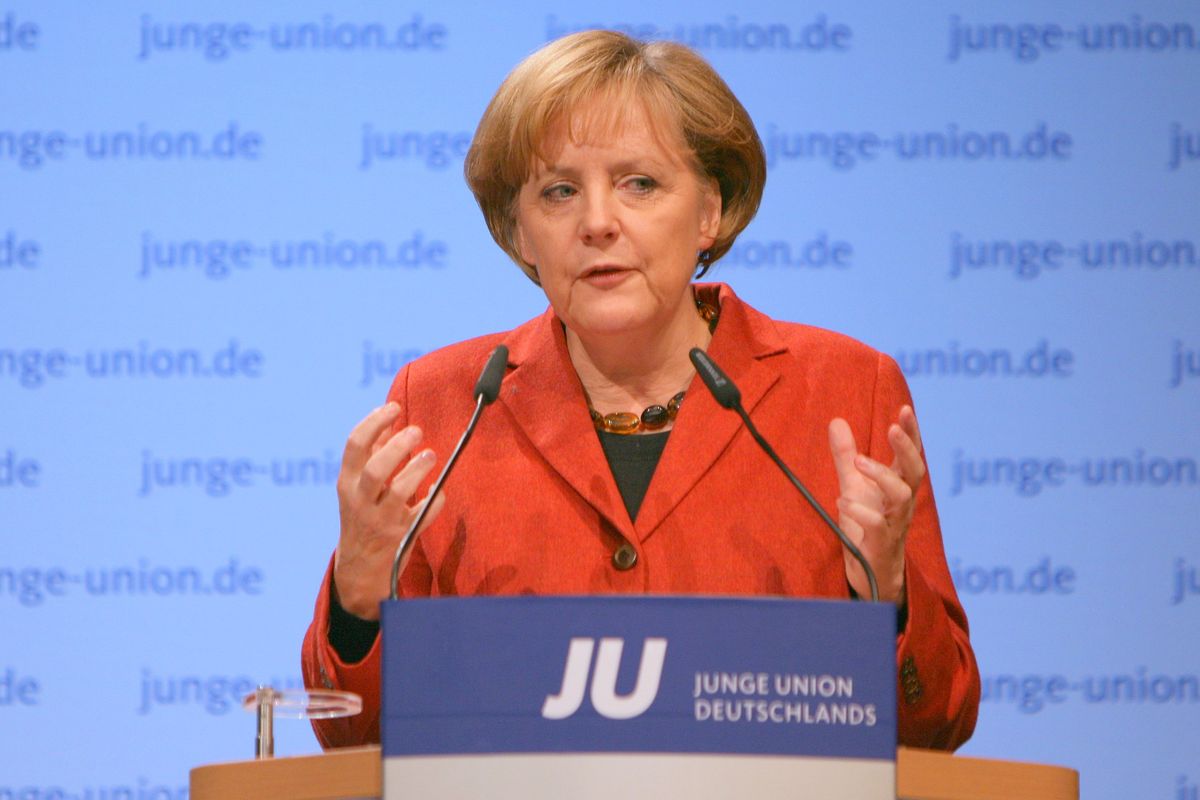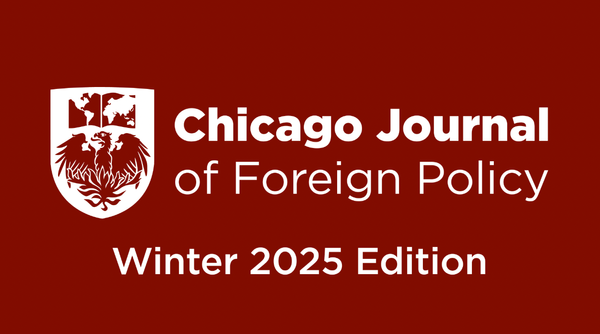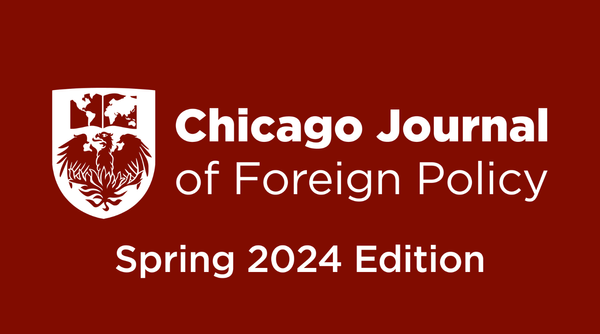Merkel’s Open Borders: Reanalyzing German National Security

GABRIEL DAVIS
In February 2015, German Chancellor Angela Merkel, responding to Syria’s grisly civil war and the growing number of migrants it produced, “threw open [Germany’s] doors” to let in upwards of one million refugees.[1] Just nine months later, Paris exploded with the deadliest terror attacks on French shores since World War II[2], rocking the Western world and calling into question the very principle of open borders. Any number of refugees could bring radical ideologies with them, and Germany’s million-strong influx had the insidious potential to unleash countless Parises across Europe. Chancellor Merkel, however, did not relent: despite everything, Germany held remarkably strong in its resolve to welcome Syrians.
There is no shortage of arguments against open borders.[3] Citing economic instability, cultural rifts, and national security threats, critics of open borders present risky open-borders scenarios that the terrorist attacks in both Paris and Brussels brought to shocking reality. On their views, immigration policy is a boxing ring—with the intellectually frail, emotionally fueled freedom of movement in one corner, and the eight-hundred-pound gorilla of domestic safety concerns in the other. Yet Chancellor Merkel defied these arguments. Nothing necessarily stopped her from closing the borders, either: just because the European Union (EU) has historically kept its borders open does not mean that its de facto leader[4] is barred from creating new precedent, especially in circumstances of heightened tension. By this calculus, the natural choice would have been to follow France: shutting borders, temporarily increasing police powers, and imposing a state of emergency.[5] Chancellor Merkel did exactly the opposite. Why?
The seeming paradox of Merkel’s decision arises from the terms in which we frame the problem—namely, treating freedom of movement issues and national security issues as unrelated, or in any case not identical. Here, proponents of open borders land in the “freedom of movement” camp, while those favoring closed borders take the “national security” camp; each side of the issue falls neatly under these labels. At least, that is the conventional view. What may in fact be necessary to understanding Merkel’s policy is erasing this dichotomy and reframing the argument for accepting refugees as a national security boon, even in the wake of Paris. Rather than “freedom of movement” and “national security” being different camps, they are one and the same, united under the canopy of Germany’s broader security interests. That is to say, in Merkel’s eyes, accepting refugees is an even safer move than rejecting them.
Under normal migration circumstances, concerns about national security might apply. Yet in this case, Syrians came to Germany to escape the same forces that ravaged Paris. Three choices await these refugees in Syria. If they return peacefully, they will be slaughtered by Assad for attempting to flee. If they return armed they may be killed by terrorist groups for their resistance or, in some cases, their following of non-Sunni Islam. And if they stay on Syria’s outskirts or fan out to surrounding countries, they risk becoming radicalized by terrorists. This last risk is particularly high, for Syrian migrants are susceptible. They find themselves in exactly the position of dependence from which ISIL and ISIS levy their largest numbers of recruits. Pressured on all sides, they cave to the Islamic State (IS), the only firm alliance they truly have. At which point, forced IS dependency and ideological brainwashing under the guise of religious truth converts them fully into terrorists.
Alternatively, they can go to Germany. Two ideologies are thus in conflict: radicalization and westernization. Chancellor Merkel prefers westernization, and any claims to championing human rights that Germany has lately enjoyed come as an added benefit, rather than the goal itself, of Germany’s thrown-open doors. Furthermore, this is consistent with Merkel’s character. Merkel is far from generous, and her unflinching move towards austerity measures to maintain EU stability has well shown the reach of her “stern mien.”[6] Welcoming one million refugees after such recent economic tremors seems, so to speak, absurdly generous. When understood through the prism of national security, however, her actions make much more sense.
Merkel’s decision, then, was not about forsaking national security for freedom of movement, but about erasing the ideological dichotomy between them and choosing one form of national security over another. She is one of the most powerful people in the world. Of necessity, she must consider the costs of her actions on the world stage. The world stage price of refusing Syrian refugees is letting them fall back into the hands of war, poverty, death, and terrorist recruitment. It is incumbent on her to make a choice that not only shepherds those in need to safer shores, but also sends a resounding message that help in its most desperate form will be met by German aid. It becomes as much a deterrent to radicalization as it does an olive branch.
Where other politicians insist on xenophobic quick fixes, Merkel plays the long game. Her decision sees to it that Syrian recruitment efforts from ISIS and ISIL go down, and that Europe fixes the Middle East’s refugee problem by consequently fixing its terrorism problem. Spectacular terrorist attacks such as Brussels and Paris are infrequent, and take months to coordinate. Chancellor Merkel has the moral temerity to look past these incidents, instead eyeing the ideological abyss they create, and seek to patch it up for the future in a geopolitical landscape where few individuals have either the foresight or the strength to venture, politically, as far as she.
She’s not bluffing, either. Her decision to let in refugees put Merkel’s election prospects on the line, but she still stood by her choice. In opening the borders, she finds both a solution and a substantive national necessity to welcome Syrians. This is true on two accounts. First, Germany has a robust infrastructure, and can handle a refugee absorption of this magnitude. Its post-World War institutions reflect a system built to withstand potentially crushing migrant influxes. Second, the large majority of refugees do not want to be radicalized or join the Islamic State. They are not yet so desperate as to join IS’ ranks; were that the case, they might stay in Iraq and Syria, where IS strongholds already exist. Rather, these migrants have fled from a war-torn country and a devastating ideology. In effect, they have saved themselves twice. Merkel has no guarantee that all of them are safe, but they do not, as a group, constitute a security threat.
Undeniably, Merkel is making a huge international wager. Her security calculation focuses less on what these refugees are, and more on what they could become—rather Germans than exploited refugees-cum-terrorists heading to Germany. It is against this threat that she fought to welcome over one million Syrians into Germany. What is clear is that Europe stands at a crossroads, where conceptions of traditional state security must yield to overseas ideology that necessarily influences domestic policy. Merkel may lead a revolutionary charge, or she may christen an era of renewed regional instability. She may bring amnesty to Syrian refugees, or she may breed the very radicalization she means to avoid by clustering them in camps.[7] She may prove the critics of open borders wrong or right. Regardless: only history can decide which future will ultimately bear out.
[1] Perring, Rebecca, “Germany accepts ONE MILLION migrants this year after Merkel throws open doors,” Daily Express, December 8, 2015, accessed May 16, 2016, http://www.express.co.uk/news/world/625066/Germany-migrant-crisis-Angela-Merkel-Syria-refugees-influx.
[2] McVeigh, Tracy, and Emma Graham-Harrison, “Parisians throw open doors in wake of attacks, but Muslims fear repercussions,” The Guardian, November 14, 2015, accessed May 24, 2016, http://www.theguardian.com/world/2015/nov/14/paris-attacks-people-throw-open-doors-to-help.
[3] Miller, David, “Immigration: The Case for Limits,” Contemporary Debates in Applied Ethics, edited by Andrew Cohen and Christopher Heath Wellman (Malden: Blackwell Publishing, 2005), 193-205.
[4] Vick, Karl, “Chancellor of the Free World,” TIME, December 9, 2015, accessed May 18, 2016, http://time.com/time-person-of-the-year-2015-angela-merkel/.
[5] Griffin, Andrew, “France state of emergency declared for three months, allowing authorities to shut down websites and giving police sweeping new powers,” The Independent, November 19, 2015, accessed May 24, 2016, http://www.independent.co.uk/news/world/europe/france-state-of-emergency-declared-for-three-months-allowing-authorities-to-shut-down-websites-and-a6740886.html.
[6] Vick, Karl, “Chancellor of the Free World,” TIME, December 9, 2015, accessed May 18, 2016, http://time.com/time-person-of-the-year-2015-angela-merkel/.
[7] Murdoch, Helen, “Syrian Refugees Blame Bureaucracy for Germany’s Crowded Camps,” Voice of America, December 2, 2015, accessed May 30, 2016, http://www.voanews.com/content/syrian-refugees-blame-bureaucracy-for-germany-crowded-camps/3084629.html.
Bibliography
Griffin, Andrew. “France state of emergency declared for three months, allowing authorities to
shut down websites and giving police sweeping new powers.” The Independent, November
19, 2015. Accessed May 24, 2016.
http://www.independent.co.uk/news/world/europe/france-state-of-emergency-declared-
for-three-months-allowing-authorities-to-shut-down-websites-and-a6740886.html.
McVeigh, Tracy, and Emma Graham-Harrison. “Parisians throw open doors in wake of attacks,
but Muslims fear repercussions.” The Guardian, November 14, 2015. Accessed May 24,
Miller, David. “Immigration: The Case for Limits.” In Contemporary Debates in Applied Ethics,
edited by Andrew Cohen and Christopher Heath Wellman. Malden: Blackwell Publishing, 2005.
Murdoch, Helen. “Syrian Refugees Blame Bureaucracy for Germany’s Crowded Camps.” Voice
of America, December 2, 2015. Accessed May 30, 2016.
Perring, Rebecca. “Germany accepts ONE MILLION migrants this year after Merkel throws open
doors.” Daily Express, December 8, 2015. Accessed May 16, 2016.
http://www.express.co.uk/news/world/625066/Germany-migrant-crisis-Angela-Merkel-
Syria-refugees-influx.
Vick, Karl. “Chancellor of the Free World.” TIME, December 9, 2015. Accessed May 18, 2016.
http://time.com/time-person-of-the-year-2015-angela-merkel/.





